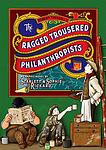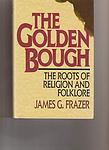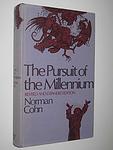The Greatest German, British "Social sciences" Books of All Time
Click to learn how this list is calculated.
This list represents a comprehensive and trusted collection of the greatest books. Developed through a specialized algorithm, it brings together 305 'best of' book lists to form a definitive guide to the world's most acclaimed books. For those interested in how these books are chosen, additional details can be found on the rankings page.
Genres
Social sciences is a broad category of books that encompasses the study of human society and social relationships. This includes disciplines such as sociology, psychology, anthropology, economics, political science, and history. Social science books aim to understand and explain human behavior, social structures, and cultural norms. They explore topics such as social inequality, power dynamics, social change, and the impact of technology on society. Social science books provide valuable insights into the complexities of human interactions and offer a deeper understanding of the world we live in.
Countries
Date Range
Reading Statistics
Click the button below to see how many of these books you've read!
Download
If you're interested in downloading this list as a CSV file for use in a spreadsheet application, you can easily do so by clicking the button below. Please note that to ensure a manageable file size and faster download, the CSV will include details for only the first 500 books.
Download-
1. Great Expectations by Charles Dickens
A young orphan boy, living with his cruel older sister and her kind blacksmith husband, has an encounter with an escaped convict that changes his life. Later, he becomes the protégé of a wealthy but reclusive woman and falls in love with her adopted daughter. He then learns that an anonymous benefactor has left him a fortune, leading him to believe that his benefactor is the reclusive woman and that she intends for him to marry her adopted daughter. He moves to London to become a gentleman, but his great expectations are ultimately shattered when he learns the true identity of his benefactor and the reality of his love interest.
The 33rd Greatest Book of All Time -
2. Communist Manifesto by Karl Marx, Friedrich Engels
This influential political pamphlet advocates for the abolition of private property, the rights of the proletariat, and the eventual establishment of a classless society. The authors argue that all of history is a record of class struggle, culminating in the conflict between the bourgeoisie, who control the means of production, and the proletariat, who provide the labor. They predict that this struggle will result in a revolution, leading to a society where property and wealth are communally controlled.
The 196th Greatest Book of All Time -
3. A Vindication of the Rights of Woman by Mary Wollstonecraft
This influential work from the late 18th century argues passionately for the education and societal recognition of women. The author asserts that women are not naturally inferior to men, but appear to be only because they lack education. She suggests that both men and women should be treated as rational beings and imagines a social order founded on reason. The book is considered one of the earliest works of feminist philosophy.
The 317th Greatest Book of All Time -
4. Das Kapital by Karl Marx
This influential work is a comprehensive critique of political economy, exploring the complex nature of capitalism, its production processes, and its societal impact. The book delves into the intricacies of commodities, labor theory of value, surplus value, and exploitation, arguing that capitalism is inherently unstable and prone to periodic crises. It also posits that the capitalist system ultimately leads to the concentration of wealth in fewer hands, causing social inequality and paving the way for its own demise. The book is widely regarded as a foundational text in the development of socialist and communist ideologies.
The 405th Greatest Book of All Time -
5. On Liberty by John Stuart Mill
This influential philosophical work explores the concept of personal freedom and societal limits, arguing that individuals should have the right to act as they want, provided they do not harm others. The book elaborates on the nature and limits of the power that can be legitimately exercised by society over the individual, and champions individuality and nonconformity. It also discusses freedom of speech, asserting that all opinions should be openly expressed to prevent any single viewpoint from becoming dogma.
The 513th Greatest Book of All Time -
6. The Making of the English Working Class by E. P. Thompson
This book is a comprehensive historical analysis of the formation of the English working class from the late 18th century to the mid-19th century. The author meticulously examines various aspects of society including the Industrial Revolution, the rise of Methodism, and political movements, arguing that the working class was not a byproduct of economic factors alone, but was actively self-formed through struggles over issues like workers' rights and political representation. The book is widely regarded as a seminal text in social history due to its focus on the experiences and agency of ordinary people.
The 551st Greatest Book of All Time -
7. The Ragged Trousered Philanthropists by Robert Tressell, Peter Miles
"The Ragged Trousered Philanthropists" is a semi-autobiographical novel that explores the lives of a group of working men in the fictional town of Mugsborough, and their struggle to survive in a society marred by poverty and exploitation. The story primarily focuses on a socialist protagonist who endeavors to enlighten his fellow workers about capitalism's inherent flaws and the necessity for social change, all while battling the dire conditions of his own life. The novel is a critique of capitalism and a call for a socialist revolution.
The 645th Greatest Book of All Time -
8. The Well of Loneliness by Radclyffe Hall
"The Well of Loneliness" is a groundbreaking novel that explores the life of a woman named Stephen Gordon, who identifies as a lesbian in early 20th century England. The story delves into the societal and personal struggles Stephen faces due to her sexual orientation, including isolation, rejection, and the struggle for acceptance. The novel is a plea for understanding and tolerance, shedding light on the challenges faced by the LGBTQ+ community during a time when their identities were largely misunderstood and stigmatized.
The 672nd Greatest Book of All Time -
9. Common Sense by Thomas Paine
This influential pamphlet, published in 1776, played a crucial role in persuading the colonists of the Thirteen Colonies to declare independence from Britain. It argues for the democratic system of government, criticizes monarchy and hereditary succession, and advocates for the inherent rights and freedoms of individuals. The text uses plain language to make complex political ideas accessible to the average citizen, promoting the idea that the colonies have a right to be an independent nation.
The 828th Greatest Book of All Time -
10. The Golden Bough by James George Frazer
"The Golden Bough" is a comprehensive study on mythology and religion, exploring the common themes found in different cultures around the world. The author uses a wide range of sources to argue that human belief progressed through three stages: primitive magic, replaced by religion, which in turn was replaced by science. The book delves into various rituals and customs, including the concept of the dying god in mythology and the role of fertility rites in agriculture. The author's theories have had a profound influence on both literature and anthropology.
The 830th Greatest Book of All Time -
11. The Open Society by Karl Popper
This book is a critique of totalitarianism and a defense of liberal democracy. The author argues against the concept of a perfect, immutable society, instead advocating for an "open society" that allows for constant change and improvement. He criticizes theories of historical determinism and the notion of "the collective", emphasizing the importance of individual freedom and human rights. The book also examines and challenges the philosophies of Plato, Hegel, and Marx, linking their ideas to the rise of fascism and communism in the 20th century.
The 857th Greatest Book of All Time -
12. The Go-Between by L. P. Hartley
Set in the summer of 1900, the novel follows a young boy who visits a friend's family estate and becomes an unwitting messenger in an illicit affair between his friend's older sister and a local farmer. As the boy navigates the complexities of the adult world and the rigid class system of the time, he experiences a loss of innocence that has lasting effects on his life. The narrative explores themes of nostalgia, memory, and the corrupting power of class and wealth.
The 932nd Greatest Book of All Time -
13. Down and Out in Paris and London by George Orwell
This book is a semi-autobiographical work that explores the harsh realities of poverty in two of Europe's most renowned cities. The protagonist, a struggling writer, first experiences the squalor, hardship, and vagabond lifestyle of Paris, where he works menial jobs and often goes hungry. The narrative then shifts to London, where the protagonist lives as a tramp, navigating the oppressive rules of homeless shelters and the stigma of poverty. The book is a deeply empathetic and insightful exploration of the often invisible world of the impoverished.
The 941st Greatest Book of All Time -
14. Economy and Society by Max Weber
"Economy and Society" is a comprehensive analysis of the relationship between economy and society, focusing on the role of social actions and their impact on economic systems. The book presents a theoretical framework for understanding how economic and social structures influence each other, including the role of bureaucracy, power, and authority. The author also introduces his famous concept of the "Protestant Ethic", linking the rise of capitalism to certain aspects of Christian beliefs. The book is considered a fundamental text in sociology and economics, providing a deep understanding of social and economic phenomena.
The 962nd Greatest Book of All Time -
15. Eichmann in Jerusalem: A Report on the Banality of Evil by Hannah Arendt
This book is a thought-provoking exploration of the trial of Adolf Eichmann, a major organizer of the Holocaust. The author argues that Eichmann was not a fanatical ideologue, but rather an ordinary individual who simply followed orders and bureaucratic procedures, highlighting the terrifying potential for evil in any system that values obedience over personal responsibility. The concept of the "banality of evil" is introduced, suggesting that horrific acts can be committed by ordinary people under certain conditions.
The 978th Greatest Book of All Time -
16. A Study of History by Arnold J. Toynbee
"A Study of History" is an extensive 12-volume universal history, exploring the development and decay of world civilizations throughout the ages. The author proposes that civilizations rise and fall based on their responses to challenges, both physical and social. The book also puts forth the idea that religions play a crucial role in the rise of civilizations and that the failure of a civilization's creative power can lead to its decline. The work is renowned for its scholarly depth and its controversial theories about the cyclical nature of history.
The 983rd Greatest Book of All Time -
17. De Profundis by Oscar Wilde
"De Profundis" is a lengthy letter written by a man during his imprisonment for gross indecency, reflecting on his past life and experiences. The letter is addressed to his former lover, and through it, he expresses his feelings of regret, despair, and hope. The man discusses his spiritual journey during incarceration, his newfound understanding of suffering, and his changing views on art and morality. The work is a profound exploration of love, forgiveness, redemption, and the human spirit's resilience.
The 1038th Greatest Book of All Time -
18. The Lost Honour of Katharina Blum by Heinrich Böll
"The Lost Honour of Katharina Blum" is a story about a young woman who becomes the target of a media smear campaign after she falls in love with a man who is suspected of being a political radical. The media's relentless invasion of her privacy and the negative portrayal of her character lead to tragic consequences, highlighting the destructive power of sensationalist journalism. The novel is also a critique of the political climate in Germany during the 1970s.
The 1119th Greatest Book of All Time -
19. Two Treatises of Government by John Locke
"Two Treatises of Government" is a seminal work in political philosophy, which outlines the author's theories on social contract and natural rights. The first treatise refutes the divine rights of kings, arguing that political power does not come from God but from the people. The second treatise introduces the idea of a government that exists to protect the rights of its citizens, particularly life, liberty, and property. The author posits that if a government fails to protect these rights, the people have the right to overthrow it. This work greatly influenced the development of democratic thought and the structure of modern democratic governments.
The 1145th Greatest Book of All Time -
20. The Protestant Ethic and the Spirit of Capitalism by Max Weber
This book is a sociological study that explores the relationship between the ethics of ascetic Protestantism and the emergence of the spirit of modern capitalism. The author argues that the religious ideas of groups such as the Calvinists played a role in creating the capitalistic spirit. The work is noted for its rigorous methodology and its contribution to the broader understanding of the origins and development of capitalism. It has been widely influential across social sciences, especially in sociology and economics.
The 1147th Greatest Book of All Time -
21. The Poems of Percy Bysshe Shelley by Percy Bysshe Shelley
This collection of poetry showcases the lyrical and evocative works of a prominent Romantic poet, known for his passionate and often radical themes. The poems cover a wide range of subjects, from love and beauty to politics and nature, embodying the poet's revolutionary spirit and his deep belief in the power of human imagination. His eloquent verses, characterized by vivid imagery and profound emotional intensity, continue to inspire and captivate readers around the world.
The 1361st Greatest Book of All Time -
22. The Swimming-Pool Library by Alan Hollinghurst
The novel follows a young, privileged, and carefree gay man living in London. His life of leisure is interrupted when he saves the life of an elderly man, who in return asks him to write his biography. As he delves into the man's past, he uncovers a hidden history of gay life that is much darker and less accepted than the one he is used to, challenging his understanding of personal and societal progress.
The 1370th Greatest Book of All Time -
23. The Pursuit of the Millennium by Norman Cohn
This book provides a comprehensive historical analysis of millenarian movements in Europe from the 11th to 16th centuries. It delves into the social and psychological factors that led to the rise of these movements, which were characterized by the belief in an impending apocalypse followed by a new, heavenly order on earth. The author examines a number of these movements in detail, including the Crusades, the flagellant movements, and the Anabaptist kingdom of Münster, and argues that these millenarian ideologies were often used to justify violence and social revolution.
The 1461st Greatest Book of All Time -
24. Decline of the West by Oswald Spengler
"Decline of the West" is a comprehensive historical and philosophical work that explores the rise and fall of civilizations. The author argues that every civilization has a life cycle, from birth to maturity and finally to decline. He suggests Western civilization is in its final stage of decline, comparing it to the end phases of the Greco-Roman civilization. The book also introduces the concept of 'pseudomorphosis', where a civilization is so deeply influenced by a previous culture that it suppresses its own authentic culture.
The 1650th Greatest Book of All Time -
25. Novum Organum by Francis Bacon
This book is a philosophical work that presents a new method of acquiring knowledge and understanding the natural world, rejecting the traditional methods of the time. The author argues that human understanding is hindered by certain 'idols' or false notions, and proposes an inductive, experimental method, known as the 'Baconian method', which involves gathering data, making observations, and conducting experiments to understand the world. This method is seen as a precursor to the modern scientific method.
The 2090th Greatest Book of All Time
Reading Statistics
Click the button below to see how many of these books you've read!
Download
If you're interested in downloading this list as a CSV file for use in a spreadsheet application, you can easily do so by clicking the button below. Please note that to ensure a manageable file size and faster download, the CSV will include details for only the first 500 books.
Download























